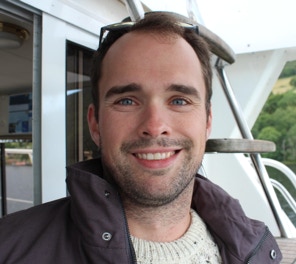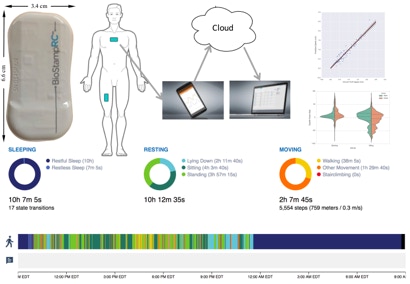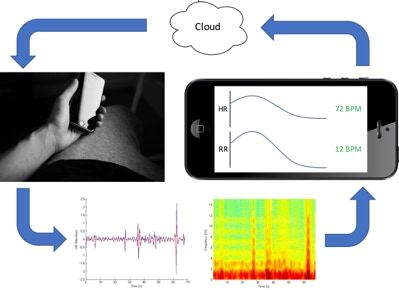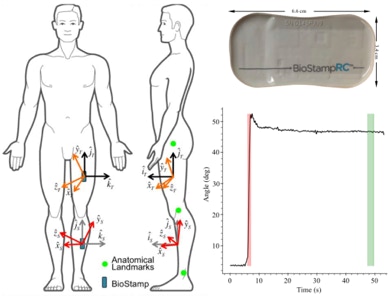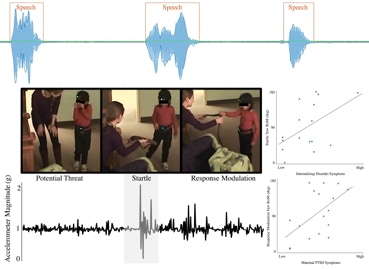Ryan S. McGinnis, PhD
Assistant Professor, Department of Electrical and Biomedical Engineering
Director, M-Sense Research Group
Research interests focus on the development of digital biomarkers and therapeutics. His work relies on technical expertise in biomedical signal processing, machine learning, biomechanics, and computational dynamics developed during past positions in both academia and industry. He is passionate about developing new technology-based solutions to pressing problems facing society.
We’re always looking for passionate researchers to join our team! Please fill out the contact form below or send an email to Ryan.McGinnis@uvm.edu to learn how you can get involved.
If you’d like to volunteer for one of our ongoing research studies, please complete the contact form below and we will be in touch shortly.
Lindsey Tulipani
Graduate Research Assistant
PhD, Bioengineering, 2021
Reed Gurchiek
Graduate Research Assistant
PhD, Mechanical Engineering, 2021
Brett Meyer
Graduate Research Assistant
MS, Biomedical Engineering, 2021
Jordyn Scism
Graduate Research Assistant
MS, Biomedical Engineering, 2020
Lara Weed
Undergraduate Research Assistant
BS, Biomedical Engineering, 2020
Jon Ferri
Undergraduate Research Assistant
BS, Biomedical Engineering, 2020
Dale Larie
Undergraduate Research Assistant
BS, Biomedical Engineering, 2020
Anna Ursiny
Undergraduate Research Assistant
BS, Biomedical Engineering, 2022
Miles Welbourn
Undergraduate Research Assistant
BS, Biomedical Engineering, 2020
Melissa Seib
Undergraduate Research Assistant
BS, Mechanical Engineering, 2019
Connor Harrigan
Undergraduate Research Assistant
BS, Biomedical Engineering, 2020
Chris Petrillo
BS, Mechanical Engineering, 2018
Knowledge Engineer at Amazon
Steve Anderau
BS, Mechanical Engineering, 2018
Data Management Research Tech Intermediate at Michigan Medicine
Ali Gohlke-Schermer
BS, Mechanical Engineering, 2018
Equipment Engineer at GLOBALFOUNDRIES
Lukas Adamowicz
MS, Mechanical Engineering, 2019
Data Scientist at Pfizer
This project focuses on the design, development, and deployment of a wearable sensor system for monitoring free living activities, mobility, and sleep in people with neurological disorders. Researchers are developing statistical models for tracking these behavioral indicators of symptom progression using concepts from machine learning (including deep learning) and signal processing. The system will be deployed to large populations of patients to track symptom progression and its effects on human behavior longitudinally. This approach will enable a holistic, objective measure of intervention efficacy, and could potentially provide a means for improving the diagnosis and treatment of these disorders.
This project focuses on development and validation of a mobile application to provide biofeedback therapy for treating panic attacks. Researchers are developing computationally efficient algorithms for extracting heart and respiratory rate from the sensing modalities available on today’s mobile devices. These estimates are provided to users in real time while they are having a panic attack thereby enabling biofeedback therapy, an evidence-based approach to treating this pressing mental health problem. The We-Panic app aims to bring this effective, evidence based treatment out of the lab and directly to users, wherever and whenever their panic attacks occur.
This project focuses on the development and validation of a wearable sensor system for accurately monitoring musculoskeletal joint kinematics and kinetics non-invasively outside of laboratory environments. Researchers on the project are applying advanced techniques from signal processing, human biomechanics, and dynamics to accurately characterize joint motion as compared to gold-standards including optical motion capture and dual fluoroscopy. Outcomes from this research have direct implications for applications in orthopedics, physical therapy, sports training, and sports medicine where they can be used to identify and track injury risk, rehabilitation, and performance.
This project focuses on the development and validation of wearable and mobile technologies to provide biomarkers for accurately characterizing risk for developing mood and anxiety disorders in young children. Researchers on the project are applying advanced techniques from signal processing, human biomechanics, and machine learning to develop statistical models for predicting risk for developing a disorder. These technologies, if successful, have the potential to drastically reshape mental health assessment in this population. Ultimately this will help children get the care they need early which improves the efficacy of prevention and intervention efforts in this population. Check out an interview McGinnis did on this topic!
NAME
MESSAGE
Google Analytics is a web analysis service provided by Google and used to track activity on this site. Find Google's privacy policy here.
(c) 2017
